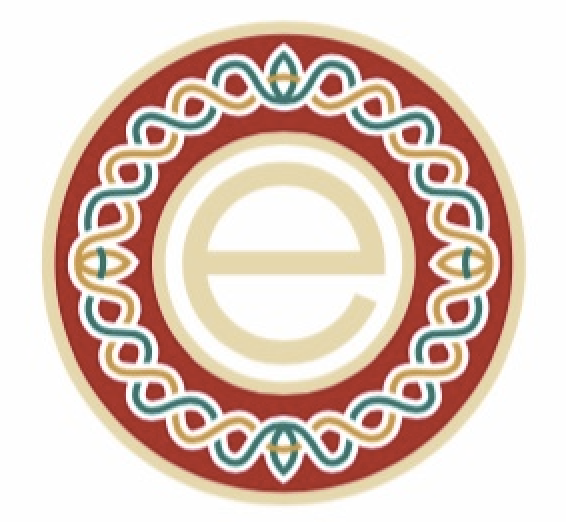Zürich. Braginsky Collection, B251
- Source
- e-codices
- Library
- Zürich. Braginsky Collection
- Shelfmark
-
- B251
- Biblissima authority file
- Date
-
- 14th century
- 15th century
- [14th/15th century]
- Language
-
- Hebrew
- Title
-
- Abraham Abulafia (1240–after 1291), Hayyei ha-Olam ha-Ba ("Life of the World to Come")
- Agent
-
-
- Preferred form
-
- Abraham ben Samuel Aboulafia (1240-1292?)
- Role
-
- Author
- Original form
-
- Author: Abûlʿafiyā, Avrāhām
- Other form
-
- Aboulafia, Abraham ben Samuel (1240-1292?)
- Abraham Abulafia
- Abraham Abulafia,
- ʾAbwlʿapyah, ʾAbraham ben Šmwʾel (1240-1292?)
- אבולעפיה, אברהם בן שמואל
- אבולעפיה, אברהם בן שמואל מחבר משוער
- Abraham ben Samuel Aboulafia
- Abulafia, Abraham ben Samuel
- Abulafia, Abraham ben Samuel (attributed to)
- Abulafyah, Avraham, 1240-1291
- R. Abraham Hispanus
- Abulʿafyah, Avraham ben Shemuʾel, 1240-1291.
- see more
- Biblissima portal
- Biblissima authority file
-
- Description
-
- The Spanish kabbalist Abraham Abulafia (1240- after 1291) advocated a concept of Kabbalah that had little or nothing to do with the well-known schools of thought. He considered Kabbalah neither as a form of gnosis nor as a kind of theosophical theory that concentrates on the Sefirot, the emanation of the Divine Being. Instead he attempted to attain a state of prophetic-mystical ecstasy, based on his conviction that the experience of the prophets was an ecstatic experience and that all true mystics were prophets. This work of his was especially popular and circulated under the titles Hayyei ha-Olam ha-Ba ("Life of the World to Come"), Sefer ha-Shem ("Book of the Divine Name") or Sefer ha-Iggulim ("Book of Circles"); in this manuscript, however, it is called Sefer ha-Shem ha-Meforash ("Book of the Ineffable name"). The manuscript presents ten inscriptions in concentric circles in red and black ink, as well as 128 only in black ink. They contain detailed instructions for mystical meditation. While contemplating these circles, one should recite the 72-lettered name of God, which is arrived at by combining the numerical values of the letters in the names of the twelve tribes of Israel, of the Patriarchs, and the nine letters of the words shivtei yisra’el ("the tribes of Irasel"). The reader should "enter" each of the triple black and red circles at the point where an "entrance" is designated by means of a small pen stroke.
- Place
-
-
- Preferred form
-
- Italy
- Original form
-
- [Italy]
- Other form
-
- Italie
- Italie (?)
- Italie (Toscane?)
- Italie (Venise ?).
- Italie ?
- Italie (région de Venise ?).
- Italie (Florence ?)
- Italie,
- Italie.
- Itàlia
- Italien
- Italy
- Italia
- Italië
- Italie (Toscane ?)
- Itàlia (Toscana?)
- Italien (Toskana?)
- Italy (Tuscany?)
- Italia (Toscana?)
- Italy (Verona)
- Italy (Naples?)
- Italy (Florence?)
- Italy (Naples?)(
- Italy (Rome?)
- Italy (Florence)
- Italy, Bologna (?)
- Italy, probably Naples
- Italy, Naples
- Italy, possibly Naples
- Italy (perhaps Bologna)
- Italy (Nonantola)
- Probably Northern Italy
- Padua or Venice
- Italy (Tuscany)
- Italy, northern (?)
- Italy and France (illumination)
- Italy and France (?)
- Most likely northern Italy
- Probably northern Italy (Verona?)
- Italy, copied by Leon ben Joshua de Rossi of Cesena
- Italy [Ancona or Pesaro?], [copied by Joseph ben Nissim Fermi?]
- [Italy] copied by Samson ben Elijah Halfan
- Italy, Venice?
- Fols. 2-4: [Italy]
- Treviglio? (Italy)
- Fols. 1-98: [Italy]; fols. 100-302: [Italy]
- Rovere (della Luna, Trent?) (Italy)
- Ff. 1-64: [Italy]
- Italy, North?
- Italy, Bologna?
- Italy, Reggio-Emilia?
- Italy, Padua?
- Italy, Ferrara or Bologna
- Italy, Padua or Rome
- Italy, Ferrara?
- Italy, Genoa?
- Italy, Probably Padua
- Italy, Parma or Cremona?
- Italy, Padua or Venice
- Italy, Lombardy or Bologna?
- Italy, Umbria?
- Italy, Rome?
- Italy, Ferrara or Venice?
- Italy, Northeast?
- Italy, Bologna or Venice?
- Italy, Veneto, Venice?
- Italy, Rome or Naples
- Italy, South?
- Italy, Florence?
- Italy, Verona?
- Italy, Brescia or Padua?
- Italy, Ferrara or Padua?
- Italy, Venice or Padua
- Italy, Cremona Brescia? and Bologna
- Italy, Ferrara or Verona?
- Italy, Urbino or Mantua(?)
- Italy, Padua or Rome?
- Italy, Naples?
- Italy, North?, Siena?
- Italy, Probably Venice
- Italy, Venice or Treviso
- Italy, North? or French, South?
- Italy, Mantua or Ferrara?
- Italy, Rimini?
- Italy, Padua or Venice?
- Italy, Florence or Rome
- Italy, Northwest?
- Italy, North, Genoa?
- Italy, Lombardy or Verona
- Italy, Emilia?
- Italy, Venice or Verona
- Italy, Veneto?
- Italy, Emilia or Mantua?
- Italy, Northeast, Ferrara?
- Italy, Central?
- Italy, Genoa (?)
- Italy, Herculaneum(?)
- IT
- Italy.
- Italienisch
- Italen
- [Italien (Teil 1)
- [Italien ]
- Italien (II)
- Italien (II.)
- Italien (I)
- Italien (IV)
- Itália
- [Italië]
- see more
- Biblissima portal
- Biblissima authority file
-
- Rights
-
- e-codices - Virtual Manuscript Library of Switzerland
- Digitisation

